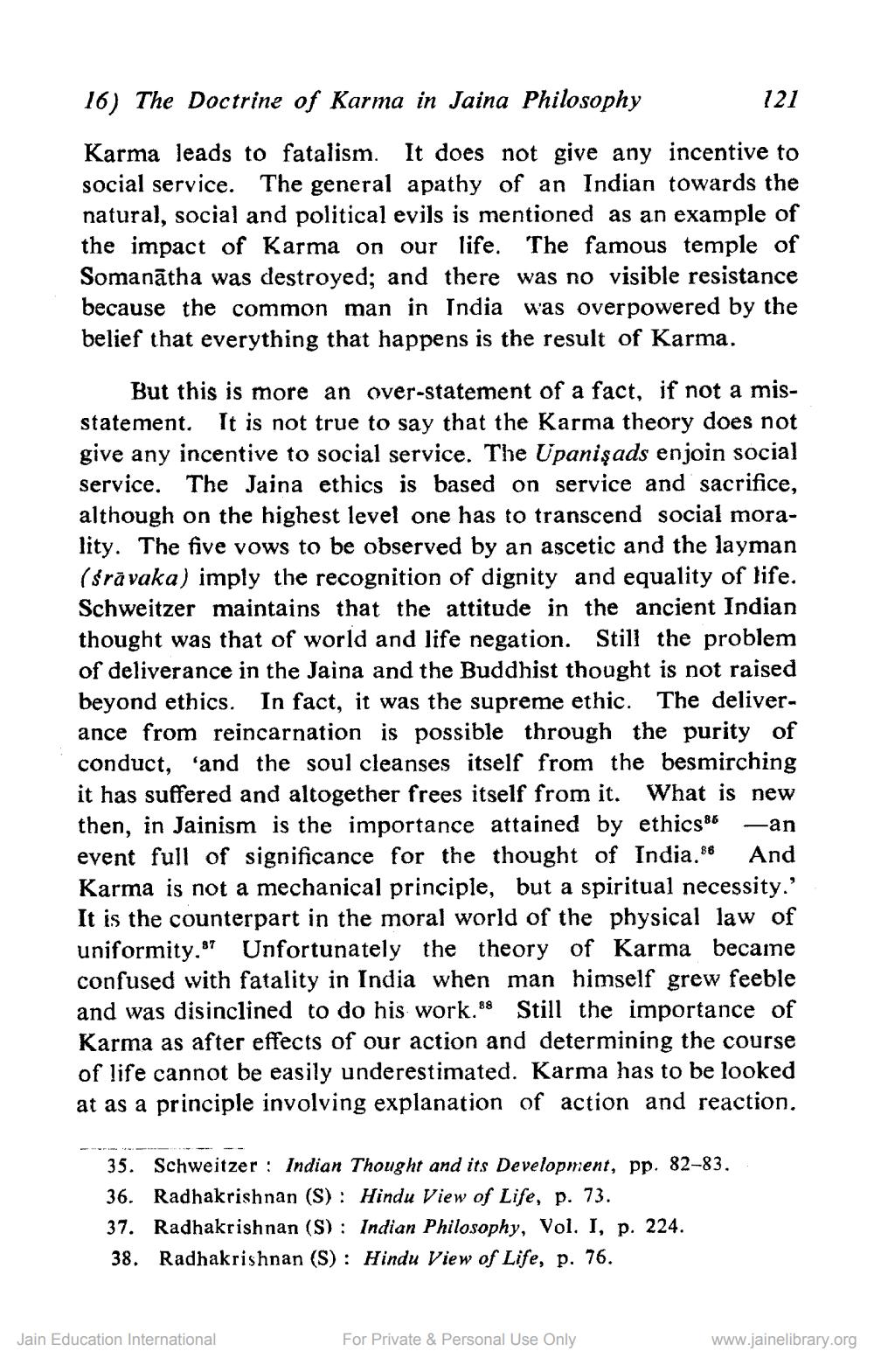________________
16) The Doctrine of Karma in Jaina Philosophy
121
Karma leads to fatalism. It does not give any incentive to social service. The general apathy of an Indian towards the natural, social and political evils is mentioned as an example of the impact of Karma on our life. The famous temple of Somanātha was destroyed; and there was no visible resistance because the common man in India was overpowered by the belief that everything that happens is the result of Karma.
But this is more an over-statement of a fact, if not a misstatement. It is not true to say that the Karma theory does not give any incentive to social service. The Upanişads enjoin social service. The Jaina ethics is based on service and sacrifice, although on the highest level one has to transcend social morality. The five vows to be observed by an ascetic and the layman (śrāvaka) imply the recognition of dignity and equality of life. Schweitzer maintains that the attitude in the ancient Indian thought was that of world and life negation. Still the problem of deliverance in the Jaina and the Buddhist thought is not raised beyond ethics. In fact, it was the supreme ethic. The deliverance from reincarnation is possible through the purity of conduct, and the soul cleanses itself from the besmirching it has suffered and altogether frees itself from it. What is new then, in Jainism is the importance attained by ethics86 —an event full of significance for the thought of India.86 And Karma is not a mechanical principle, but a spiritual necessity.' It is the counterpart in the moral world of the physical law of uniformity.97 Unfortunately the theory of Karma became confused with fatality in India when man himself grew feeble and was disinclined to do his work.88 Still the importance of Karma as after effects of our action and determining the cour of life cannot be easily underestimated. Karma has to be looked at as a principle involving explanation of action and reaction.
35. Schweitzer : Indian Thought and its Development, pp. 82–83. 36. Radhakrishnan (S): Hindu View of Life, p. 73. 37. Radhakrishnan (S) : Indian Philosophy, Vol. I, p. 224. 38. Radhakrishnan (S): Hindu View of Life, p. 76.
Jain Education International
For Private & Personal Use Only
www.jainelibrary.org




